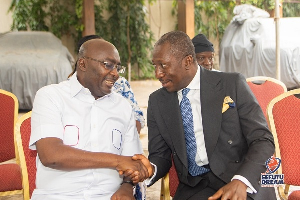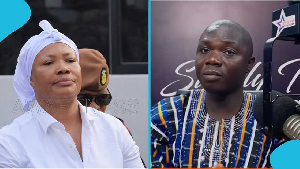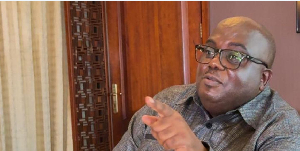It has been said over and over again by both Ewes and non-Ewes that the Ewe language is one of the hardest to learn. I agree completely. In fact, it is one thing to be able to understand and speak the language; it is another thing to be able to write it well, even while we are not unaware of the complexities we face because of the absence of non-English alphabets in a typical computer with a Microsoft operating system. That said, a language does evolve, and a language tends to deteriorate – and eventually disappear – when the repositories of said language take for granted the hard work of those who spent years, under very difficult conditions, to produce it in written form. Even for Ewes, the Ewe language can be difficult to write, and we are, indeed, grateful to those who spent many years polishing the written form for our use today.
I have lived in the United States of America for fourteen years, and with only a handful of Ewe friends and relatives to chat with every now and then, I face a serious risk of forgetting some of the elements of style of the Ewe language. But when I recently could not remember the Ewe word for “sponge,” I became alarmed, which forced me to place an embarrassing call to a friend – he is a fairly new immigrant and lives in Delaware – for help. The mental etiolation that I suffered because of this incident cannot be put into words! I immediately sent an electronic mail to my sister, an Ewe-language expert and a holder of two master’s degrees, to send me an Ewe textbook that I could pore over to reclaim that which I have lost!
Well, I have not been back in Ghana all these years, and I certainly miss the rich words, phrases and sentences that only the elderly, men and women steeped in tradition, can pass along to the younger generation. I still remember vividly the years that I spent learning the deep meanings of unique aphorisms under the tutelage of a dear maternal uncle – and my uncle is a sage! My uncle would share with me the rich history of our people; the various aspects of the culture; the interesting genealogies; and the etymologies of specific Ewe words, phrases, and sentences. Oh, how I now miss all of those sessions!
Let me give the reader a basic example of how complex the Ewe language is. Take, for instance, the Ewe word “to” (pronounced to-o). Such a simple word has four meanings, and each meaning can only be derived contextually. Depending on how this little word is used, it could mean any of the following: hill (a noun); ear (a noun); pound (a verb), as in “pound the fufu”; and father-in-law. It is obvious that the usage of such a tiny word, in the few seconds that a listener has to decode a statement, cannot be considered trivial: a certain level of proficiency, from both speaker and listener, is certainly required.
If you are an Ewe and can read the Ewe text below, considering the fact that certain non-English alphabets are missing from it, then you have a good working knowledge of the language. If you cannot read and understand the text, then you have some work to do. We Ewes must take great pride in our language and also make sure that we hand down to future generations a legacy of a good, effective Ewe language. You and I, as Ewes, have a huge responsibility to safeguard the language – and we ought to take the role very seriously!
Yehowa enye kplolanye, naneke mehiãam o. Lãnyife damawo wona metsyo ako do; gbodemefe towo nu wokplom yii. Ena nye luvo gbo de eme, ekplom to tofe dzodzoewo le efe nko la ta. Ne mezo bali dobluko tsiditsidi me hã, nyemavo dzogbevoea deke o, elabena woe le gbonye; wo atikplo kple wo atizoti faa ako nam. Edo kplo de akonye me le nye ketowo nku me; esi ami de ta nam, nye kplu yo gba go. ?, dzogbenyuie kple amenuveve adze yonyeme le nye agbe me nkekewo katã me, eye mano Yehowa fe me daa.
Of course, as mentioned earlier, it was impossible to replicate some of the true Ewe-language characters, but I am sure that many of us were able to read and understand the text!
Akpe. Me bia Mawu fe yayra na mi!
The writer, Daniel K. Pryce, holds a master’s degree in public administration from George Mason University, U.S.A. He is a member of the national honor society for public affairs and administration in the U.S.A. He can be reached at dpryce@cox.net.
Opinions of Tuesday, 28 September 2010
Columnist: Pryce, Daniel K.
Promoting the Ewe Language
Opinions













